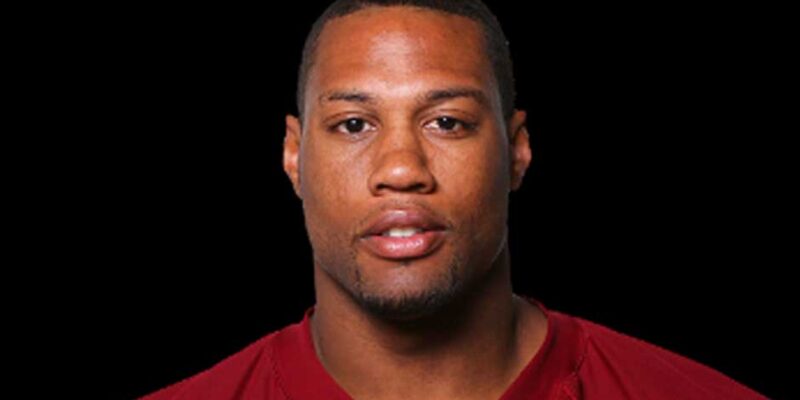Introduction to Marcus White in Superstore
Anyone who’s watched NBC’s Superstore knows that Marcus White is impossible to ignore. This guy started out stocking shelves at Cloud 9 Store 1217, but somehow managed to work his way up to warehouse supervisor. The promotion wasn’t exactly traditional – Marcus basically traded not suing the company for a better job title after getting hurt on the job.
Here’s the thing about Marcus: he’s the kind of coworker everyone has encountered at some point. You know the type – completely unpredictable, says things that make you cringe, but somehow the place wouldn’t be the same without him. That’s exactly what makes Superstore feel so real compared to other workplace comedies.
Marcus has this weird ability to be both the worst and most essential employee at the same time. His warehouse crew actually respects him, which says something about his leadership skills, even if his methods are questionable. It’s this contradiction that makes viewers either love him or want to shake some sense into him.
The Complex Personality Behind Marcus White
Let’s be honest – Marcus White is a walking HR nightmare. The guy regularly says things that would get most people fired on the spot, especially around his female coworkers. But here’s where Superstore gets clever: instead of just making him a cartoon villain, the show uses Marcus to shine a light on real problems that exist in retail workplaces everywhere.
What’s surprising about Marcus is that he’s not completely hopeless. Every once in a while, he’ll have a moment of clarity where he realizes he’s messed up. These aren’t big dramatic scenes – just small moments where you see that there’s actually a person with feelings underneath all that inappropriate behavior.
The relationship with his mom really shows a different side of Marcus. When it comes to family, he’s genuinely caring and responsible. It’s like the show is reminding us that even the most problematic people in our lives are still human beings with their own struggles and relationships that matter to them.
Jon Barinholtz: The Actor Who Brought Marcus to Life
Jon Barinholtz deserves serious credit for making Marcus work as a character. Playing someone this controversial for 68 episodes across six seasons couldn’t have been easy. Barinholtz comes from a comedy background – you might have seen him in Parks and Recreation or Outsourced – so he knew how to walk that fine line between funny and offensive.
The guy comes from an entertainment family too. His dad Alan is an actor and lawyer, and his brother Ike Barinholtz is pretty well-known in comedy circles. Maybe growing up around people who understood both the legal and creative sides of things helped Jon figure out how to play a character who’s constantly pushing boundaries.
What’s really impressive is how Barinholtz found ways to make Marcus sympathetic without excusing his behavior. Some of his best moments were apparently improvised, which shows he really understood the character. That takes skill – making someone likeable when they’re doing unlikeable things.
Marcus’s Role in Superstore’s Workplace Dynamic
Marcus sits in this interesting spot at Cloud 9 where he’s got real authority over the warehouse but uses it in completely unconventional ways. Sometimes his weird ideas actually work, which drives the more by-the-book employees crazy. It’s a pretty accurate reflection of how many workplaces actually function – the people who get things done aren’t always the ones following the manual.
His friendship attempts with Jonah are both hilarious and kind of sad. Here’s this college-educated guy who clearly wants nothing to do with Marcus, but Marcus keeps trying anyway. It highlights how lonely retail work can be and how people from different backgrounds struggle to connect even when they’re working side by side every day.
Marcus also gets involved in a lot of the show’s bigger storylines about worker rights and store politics. It’s interesting how someone who seems so self-centered can end up fighting for things that benefit everyone. Maybe it’s because he understands what it’s like to be treated poorly by management, even if he doesn’t always treat others well himself.
The Evolution of Marcus Throughout Superstore Seasons
Watching Marcus develop over six seasons is like watching someone grow up very, very slowly. He started as pure comic relief, but the writers gradually gave him more depth and importance to the overall story. His journey from sales floor to warehouse supervisor wasn’t just about getting promoted – it was about proving he could handle responsibility.
Some of the best Marcus episodes happen during crisis situations. When the tornado hit and he got laid off, then rehired, you could see different sides of his personality emerge. He’s actually pretty resourceful when things get serious, even if his solutions are unconventional. These moments show that his weird way of thinking can sometimes be exactly what’s needed.
The show also used Marcus to explore themes about second chances and whether people can really change. Despite all his problems, he keeps his job and even advances. That might frustrate viewers who want to see consequences, but it’s probably more realistic than we’d like to admit about how many workplaces actually operate.
Fan Reception and Cultural Impact of Marcus White
Fans have complicated feelings about Marcus, which is exactly what makes him such an effective character. Online discussions about Superstore often center around whether Marcus is funny or just problematic. The fact that people are still debating this shows how well the character captures real workplace dynamics that make people uncomfortable.
Social media is full of Marcus compilation videos and memes, usually featuring his most outrageous moments. People seem to enjoy him in small doses, which makes sense – he’s the kind of person who’s entertaining to watch but exhausting to work with. This online popularity has helped keep Superstore relevant even after it ended.
Marcus has become a touchstone for discussions about workplace behavior and accountability. People use him as an example when talking about how companies handle difficult employees. That’s pretty significant cultural impact for a supporting character on a network sitcom.
Marcus White’s Contribution to Modern Workplace Comedy
Marcus represents something new in workplace comedy – a character who doesn’t fit neatly into traditional categories. Unlike The Office’s clearly defined character types, Marcus is simultaneously the class clown, the problem employee, the unlikely leader, and the guy who somehow gets results. This complexity has influenced how other shows approach workplace characters.
Modern workplace comedies have learned from Superstore that you can address serious issues like harassment and discrimination while still being funny. Marcus’s inappropriate behavior isn’t just played for laughs – it’s used to start conversations about real problems. This approach has raised the bar for how comedy shows handle sensitive workplace topics.
The character also brings working-class perspectives that are often missing from television. Marcus represents employees who don’t have college degrees or corporate ambitions but still play crucial roles in their organizations. This kind of authentic representation has pushed other shows to be more inclusive in their casting and storytelling.
The Legacy of Superstore Marcus in Television History
Now that Superstore has wrapped up, it’s clear that Marcus White will be remembered as one of the most authentic workplace comedy characters of recent years. He proved that supporting characters can carry real narrative weight and contribute to important social commentary about American work culture.
Marcus’s lasting popularity suggests he struck a nerve with audiences who recognized him from their own workplaces. His ability to be both funny and frustrating, problematic and sympathetic, has set a new standard for complex character development in workplace comedies.
Looking back, Marcus White helped establish Superstore as more than just another office comedy. The character contributed to the show’s reputation for tackling real labor issues while still being entertaining. As workplace comedies continue to evolve, Marcus stands as proof that flawed, complicated characters can enhance both the comedy and the social commentary, leaving viewers with plenty to think about long after the credits roll.

















